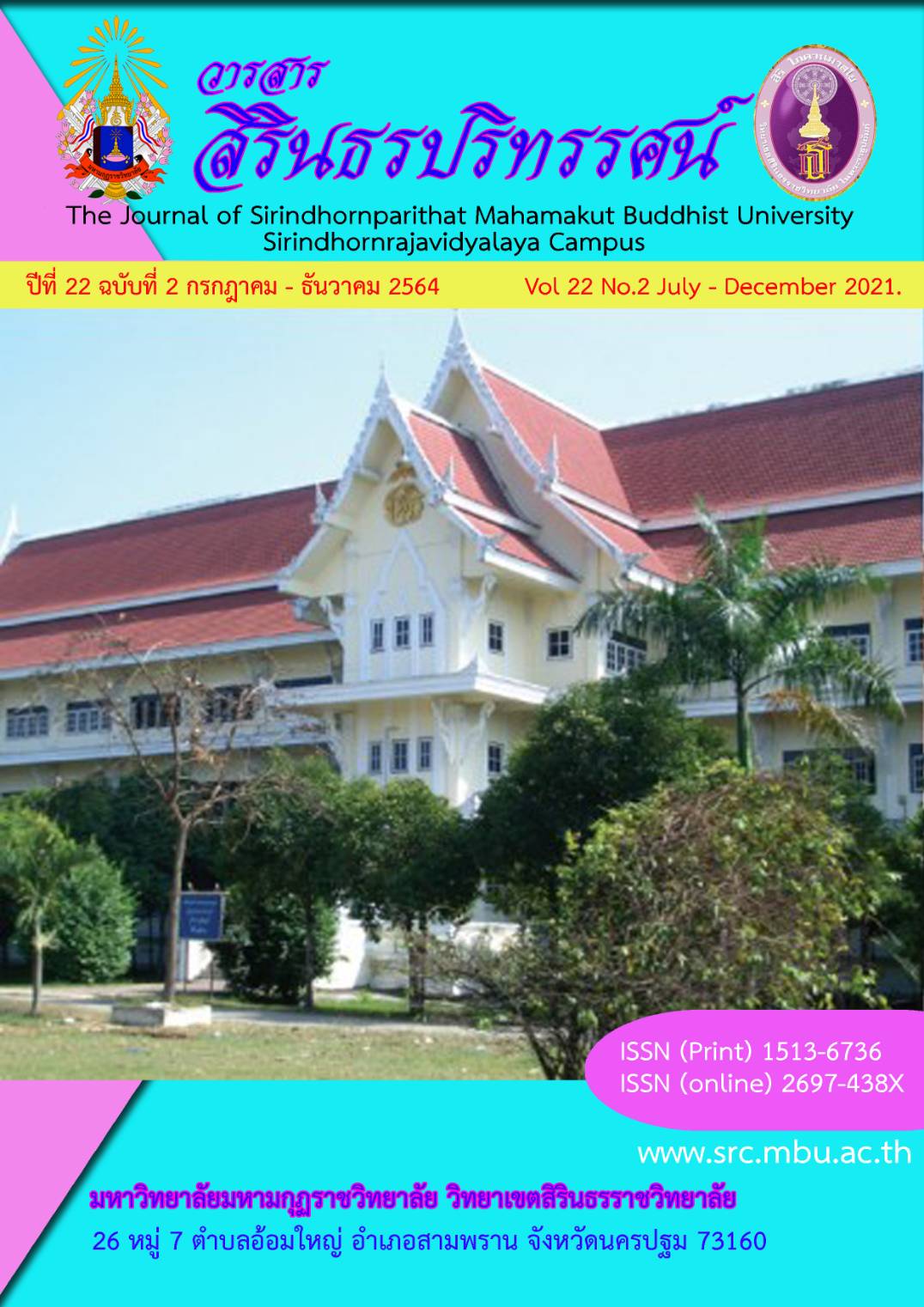The application of humanist psychology to strategies for teaching and learning English.
Keywords:
strategies for teaching and learning English, The application of humanist psychologyAbstract
Human value development self-understanding and understanding of others sensitivity to emotions and feelings participation in learning and learning methods which teachers can apply in teaching English is “Humanistic psychology” because this group of thinkers emphasizes the importance of being human and sees human beings as valuable, virtuous, competent, demanding and intrinsically motivated to develop their own potential. And the key to building potential is learning. It consists of three main characteristics: (1) learning is the result of experience and practice, caused by the process of maturity growth (2) learning is effective in terms of behavior change which has to be in a better way and (3) learning is a relatively permanent change. Learning must be a relatively permanent change in behavior and cannot negate the learning that has occurred. Which is suitable for teaching English to complete all 4 skills, namely listening skills, speaking skills, reading skills and writing skills.
References
จิราภรณ์ ตั้งกิตติภาภรณ์. (2556). จิตวิทยาทั่วไป. กรุงเทพฯ: สำนักพิมพ์แห่งจุฬาลงกรณ์มหาวิทยาลัย.
ดียู ศรีนราวัฒน์ และคณะ. (2558). ภาษาและภาษาศาสตร์. กรุงเทพฯ: สำนักพิมพ์มหาวิทยาลัยธรรมศาสตร์.
เติมศักดิ์ คทวณิช. (2546). จิตวิทยาทั่วไป. กรุงเทพฯ: ซีเอ็ดยูเคชั่น.
ทิศนา แขมมณี. (2548). ศาสตร์การสอน: องค์ความรู้เพื่อการจัดกระบวนการเรียนรู้ที่มีประสิทธิภาพ. (ฉบับปรับปรุงเพิ่มเติม). พิมพ์ครั้งที่ 4. กรุงเทพฯ: สำนักพิมพ์แห่งจุฬาลงกรณ์มหาวิทยาลัย.
นุชลี อุปภัย. (2555). จิตวิทยาการศึกษา. พิมพ์ครั้งที่ 2. กรุงเทพฯ: สำนักพิมพ์แห่งจุฬาลงกรณ์มหาวิทยาลัย.
ประสิทธิ์ สระทอง และ วิจิตรา ศิริวงศ์. (2562). การวิจัยเชิงปฏิบัติการในชั้นเรียน. วารสารสิรินธรปริทรรศน์. 20(2): 212.
พัฒน์ วัฒนสินธุ์. (2562). การสร้างบรรยากาศทางจิตวิทยาที่ส่งเสริมการเรียนรู้ภาษาอังกฤษตามแนวมนุษยนิยม. วารสารมนุษยศาสตร์ มหาวิทยาลัยนเรศวร, 16(2): 25-26.
ราชบัณฑิตยสถาน. (2555). พจนานุกรมศัพท์ศึกษาศาสตร์. กรุงเทพฯ: ราชบัณฑิตยสถาน.
วิไลวรรณ ศรีสงคราม และคณะ. (2549). จิตวิทยาทั่วไป. กรุงเทพฯ: ทริปเพิ้ล กรุ๊ป.
สิริวรรณ โพธิ์ทอง และ วนิดา อัญชลีวิทยกุล. (2561). การใช้การสอนแบบการเล่าเรื่องเพื่อพัฒนาทักษะการพูดภาษาอังกฤษของนักเรียนชั้นประถมศึกษาปีที่ 6. วารสารบัณฑิตวิทยาลัย มหาวิทยาลัยสวนดุสิต. 14(2): 146.
แสงระวี ดอนแก้วบัว. (2558). ภาษาศาสตร์สำหรับครูสอนภาษาอังกฤษ. กรุงเทพฯ: สำนักพิมพ์จุฬาลงกรณ์มหาวิทยาลัย.
อรุณี วิริยะจิตรา และคณะ. (2555). เหลียวหลังแลหน้า: การสอนภาษาอังกฤษ. กรุงเทพฯ. ส.เอเชียเพรส (1989) จำกัด.
อาภรณ์ ใจเที่ยง. (2553). หลักการสอน. (ฉบับปรับปรุง). พิมพ์ครั้งที่ 5. กรุงเทพฯ: โอเดียนสโตร์.
Downloads
Published
Issue
Section
License
Copyright (c) 2022 Mahamakut Buddhist University

This work is licensed under a Creative Commons Attribution-NonCommercial-NoDerivatives 4.0 International License.
บทความที่ได้รับการตีพิมพ์เป็นลิขสิทธิ์ของ มหาวิทยาลัยมหามกุฏราชวิทยาลัย วิทยาเขตสิรินธรราชวิทยาลัย
ข้อความที่ปรากฏในบทความแต่ละเรื่องในวารสารวิชาการเล่มนี้เป็นความคิดเห็นส่วนตัวของผู้เขียนแต่ละท่านไม่เกี่ยวข้องกับหาวิทยาลัยมหามกุฏราชวิทยาลัย วิทยาเขตสิรินธรราชวิทยาลัย และคณาจารย์ท่านอื่นๆในมหาวิทยาลัยฯ แต่อย่างใด ความรับผิดชอบองค์ประกอบทั้งหมดของบทความแต่ละเรื่องเป็นของผู้เขียนแต่ละท่าน หากมีความผิดพลาดใดๆ ผู้เขียนแต่ละท่านจะรับผิดชอบบทความของตนเองแต่ผู้เดียว




